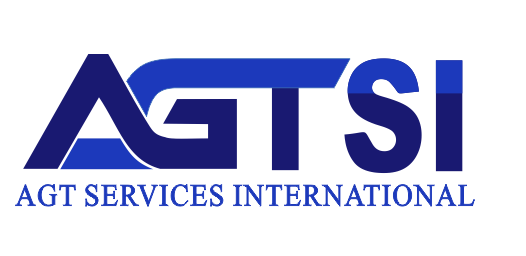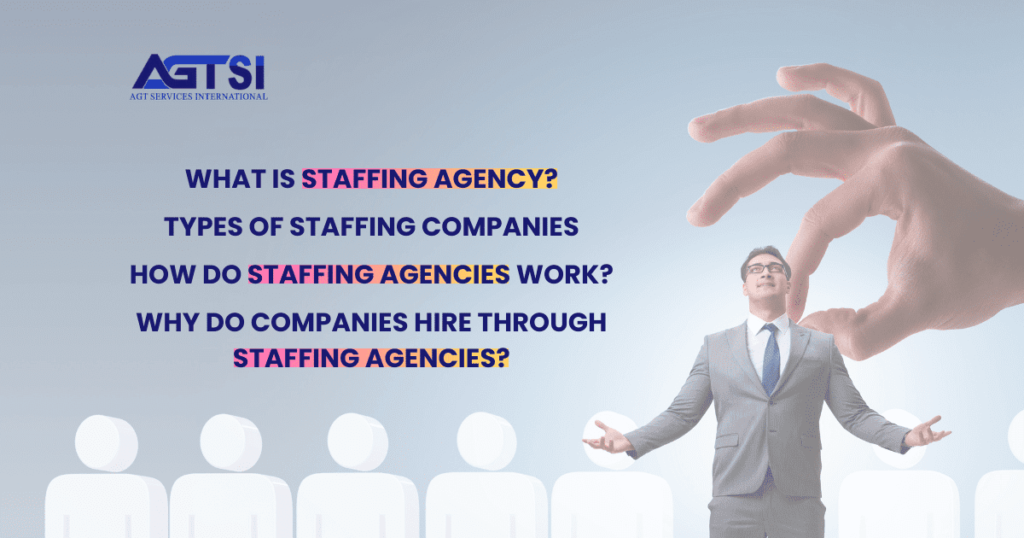Introduction:
In the current dynamic employment landscape, securing the ideal talent for your company is imperative for achieving success. Customized talent assessments play a significant role in identifying top candidates who possess the necessary skills and align with your company’s culture and values. This article will explore everything you need about customized talent assessments, from understanding the basics to using technology and measuring effectiveness, along with introducing the top 10 customized talent assessment tools to streamline your hiring process and make data-driven decisions.
Understanding the Basics of Talent Assessments
At the core of customized talent assessments are various tools and techniques designed to evaluate candidates’ skills, personality characteristics, and cultural fit. Customized talent assessments go outside traditional interviews and resumes, offering a deeper understanding of candidates’ retained top talent and potential for organizational success.
Recommended: 21 Best Free Candidate Sourcing Tools for Recruiters
Recommended: 10 Practical Steps to Increase Recruiter Productivity
Types of Talent Assessments
1. Psychometric Tests
Customized talent assessments measure a candidate’s mental abilities, personality traits, and behavioural tendencies. Recruiters use assessments like tests for soft skills, questionnaires to understand personality, and tests to judge how someone handles situations.
2. Competency-Based Interviews
Customized talent competency-based assessment interviews focus on evaluating a candidate’s past behaviour and experiences to predict future performance. Candidates are asked to provide specific examples of handling various work situations.
3. Assessment Centers
Customized talent assessment centres involve activities and simulations to evaluate a candidate’s skills, abilities, and behaviour in a simulated work environment. Tailored talent evaluations often include group exercises, role-plays, presentations, and case studies.
4. Technical Assessments
Customized talent technical assessments evaluate a candidate’s technical skills and knowledge of their job role. Assessments may include coding tests, design challenges, writing samples, or other technical tasks.
5. Cognitive Ability Tests
Cognitive Ability assessment tests analyze a candidate’s thinking skills, including problem-solving, critical thinking, logical reasoning, and numerical capabilities. Recruiters are often used to predict a candidate’s potential for success in a role that requires analytical thinking.
6. Personality Assessments
Personality assessments evaluate a candidate’s personality characteristics, such as openness, responsibility, extraversion, agreeableness, and emotional stability. Assessments help employers understand how a candidate may fit into the company culture and work environment.
Recommended: 10 Practical Steps to Increase Recruiter Productivity
7. Job Simulations
Tailored skill assessment simulations replicate real-life job tasks and scenarios to assess a candidate’s job-related skills, decision-making abilities, and problem-solving capabilities. Assessments provide a more realistic preview of how a candidate would perform in the actual job role.
8. 360-Degree Feedback
This assessment methodology collects input from various channels, encompassing input from supervisors, colleagues, team members, and even clients, to offer a holistic perspective on an individual’s accomplishments, conduct, and skills.
9. Culture Fit Assessments
Culture fit assessments evaluate how well a candidate’s values, beliefs, work style, and personality align with the company’s culture and values. They help ensure candidates thrive and contribute positively to the organization’s culture.
10. Emotional Intelligence (EQ) Assessments
Emotional intelligence (EQ) evaluations gauge an individual’s emotional intelligence level, covering aspects such as self-awareness, self-management, empathy, interpersonal abilities, and drive. EQ assessments are valuable for roles that require strong interpersonal skills and emotional resilience.
Recommended: Top Social Media Recruiting Tools
Recommended: 20 Recruiting Ideas Outside the Box
Using Technology in Customized Talent Assessments
Using technology in customized talent assessments is a game-changer in the modern recruitment landscape. It offers a range of innovative tools and platforms that streamline the assessment process, enhance candidate experience, and provide valuable insights for making data-driven hiring decisions. Here are some key ways technology is revolutionizing customized talent assessments:
1. Gamified Assessments
Gamification is a popular trend in talent assessments, where assessments are designed as interactive games. These gamified assessments engage candidates and provide a more accurate measure of their cognitive abilities, problem-solving skills, and personality characteristics.
2. Data Analytics
Technology allows for collecting and analysing extensive amounts of data from talent assessments. Data analytics tools can provide valuable insights into candidate performance, trends in assessment results, and areas for improvement in the assessment process.
3. AI-Powered Assessments
Artificial intelligence (AI) is at the forefront of customized talent assessments, allowing organizations to conduct refined evaluations outside traditional methods. AI-powered tools can analyze extensive data to assess candidates’ skills, competencies, and fit for specific roles.
4. Virtual Reality (VR) Assessments
Virtual reality is a developing technology in talent assessments, allowing candidates to engage themselves in simulated work environments. VR assessments can assess candidates’ technical skills, problem-solving abilities, and adaptability to different situations.
5. Mobile-Friendly Assessments
With the widespread use of smartphones and tablets, technology allows for mobile-friendly talent assessments. Candidates can complete assessments on their mobile devices, making the process more convenient and accessible.
6. Video Interviews
Technology allows for video interviews in talent assessments, where candidates can record their responses to interview questions. AI-powered video interview platforms can analyze candidates’ language, tone, and facial expressions to assess their communication skills, emotional intelligence, and cultural fit.
Recommended: Applicants vs Candidates
Recommended: What Role Does HR Play in Training and Development?
Crafting a Comprehensive Assessment Strategy
A complete assessment strategy is important in any organization’s talent acquisition and management process. The assessment strategy involves a structured approach to evaluating candidates, focusing on their qualifications, potential fit within the company culture, and ability to contribute to organizational goals. Here are some key elements to consider when crafting a wide assessment strategy:
1. Define Core Competencies
Begin by clearly defining the core competencies and skills required for success in your hiring roles. These competencies should match the company’s values, mission, and strategic objectives.
2. Choose the Right Assessment Tools
Select assessment tools that are best suited to evaluate the defined competencies. This may include a combination of psychometric tests, competency-based interviews, assessment centres, technical assessments, and other tools, depending on the nature of the roles.
3. Standardize the Assessment Process
Develop a standardized assessment process to ensure fairness and consistency across all candidates. This includes using the same assessment criteria, interview questions, and evaluation methods for each candidate.
4. Incorporate Diversity and Inclusion
Ensure that your assessment strategy promotes diversity and inclusion by using unbiased language in job descriptions and assessments, implementing blind hiring practices where possible, and including diverse panel members in the assessment process.
5. Align with Business Objectives
The assessment strategy should align with the organisation’s business objectives and talent management goals. This means assessing candidates’ skills and potential to grow and contribute to the company’s long-term success.
6. Continuous Improvement
Regularly review and update your assessment strategy based on feedback, performance data, and evolving business needs. This continuous improvement ensures that your assessments remain effective, relevant, and aligned with organizational goals.
Recommended: How do Staffing Agencies Get Contracts?
Recommended: How Recruitment Agencies Get Clients?
Emphasizing Fairness and Diversity
In today’s diverse workforce, it’s important to ensure that talent assessments promote fairness and diversity. Assessments include using unbiased language in job descriptions and assessments, implementing blind hiring practices, including diverse panel members in assessments, and fostering an inclusive candidate experience.
Aligning Talent Assessment with Business Strategy
Effective customized talent assessments should align closely with an organization’s business strategy. Talent assessments involve Understanding business goals. Using predictive success modelling to assess candidate fit. Creating a feedback loop to refine assessment tools based on job performance data.
Enhancing Candidate Experience
A great candidate’s journey during talent evaluations can greatly influence how people see a company as an employer. Clear communication, respectful interactions, and providing constructive feedback to candidates contribute to a positive assessment experience, attracting top talent and enhancing organizational reputation.
Recommended: Recruitment Agency Fee Structure
Recommended: How to Calculate Recruitment ROI?
Measuring the Effectiveness of Talent Assessments
To make sure they keep getting better, companies need to check how well their talent assessment process is working. The assessment process includes tracking the quality of hire metrics, collecting candidate feedback, and conducting ROI analysis to evaluate the impact of talent assessments on organizational performance.
Top Talent Management Assessment Tools
1. HireVue
HireVue stands out as a top-notch platform for video interviews and talent evaluations, driven by the power of Artificial Intelligence (AI). HireVue helps companies find the top candidates by giving detailed information about candidates’ communication skills and how well they might perform in a job. HireVue simplifies the hiring process, offering a complete understanding of candidates outside their resumes.
2. Talent Q
Talent Q, part of Korn Ferry, offers adaptive assessments that adjust to candidates’ abilities, precisely measuring their skills. Talent Q assists companies in getting a better grasp of candidates’ skills, leading to improved matches for positions ranging from mid-sized businesses to large enterprises.
3. HireLogic
HireLogic is an intelligent interview platform leveraging AI to make unbiased hiring decisions based on data. Its AI-driven insights provide a deeper understanding of candidates’ behaviours and responses during interviews, making it suitable for medium to large companies.
4. Berke
Berke is an advanced tool for evaluating job candidates and their abilities in different positions, using data-driven approaches to accurately forecast candidate behaviour and job performance. Berke customized assessments match specific job attributes to help predict job performance and ensure a good job fit, making it ideal for SMBs and mid-market companies.
5. The Predictive Index
The Predictive Index provides a platform for talent optimization that helps align people’s strategies with business goals for better outcomes. It’s known for its behavioural and cognitive ability assessments, which give a complete view of workplace behaviours and skills and are especially helpful for medium to large companies.
6. Criteria Corp
Criteria Corp offers a complete suite of objective, multidimensional assessments that cover skill, personality, and skills. Criteria easy-to-understand reports and benchmarks match specific positions, simplify the hiring process and enhance hiring quality for organizations of all sizes.
7. TestGorilla
TestGorilla is a pre-employment testing software that offers a wide range of scientifically validated tests covering cognitive ability, personality traits, software skills, and job-specific tasks. It allows recruiters to compare candidates objectively and identify the most suitable talent based on proven skills, making it valuable for small to large organizations.
8. Spark Hire
Spark Hire is a video interviewing platform that improves hiring with one-way and live video interviews. It reduces the time spent on initial interviews and improves collaborative decision-making, making it a great choice for small to large businesses with varying hiring needs.
9. Plum
Plum blends industrial and organizational psychology with AI to offer predictive talent insights, assisting businesses in recruiting, developing, and retaining top-notch employees. Plum stands out by measuring company culture and finding candidates who fit well with its culture and job needs, making it a great choice for small and large enterprises.
10. Pymetrics
In hiring, Pymetrics uses brain science and artificial intelligence, offering fun tests that forecast how well candidates match different jobs. Pymetrics’ unique approach to assessing cognitive and emotional features provides a more engaging candidate experience. Pymetrics helps reduce unconscious bias in hiring decisions.
Recommended: Art of Negotiating Recruitment Agency Fees With Clients
Final Thoughts
Customized talent assessments are crucial to modern recruitment and talent management strategies. Organizations can build high-performing teams that drive success by understanding the basics, leveraging technology, emphasizing fairness and diversity, aligning with business strategy, improving candidate experience, and measuring effectiveness. Explore the top customized talent assessment tools such as HireVue, Pymetrics, Criteria Corp, Talent Q, Berke, Plum, The Predictive Index, TestGorilla, HireLogic, and Spark Hire to find the right solution for your organization’s talent acquisition and development needs. Leverage these tools to enhance your hiring process, streamline candidate assessment, and make informed hiring decisions based on data and insights, ultimately building a high-performing team that drives success.



















